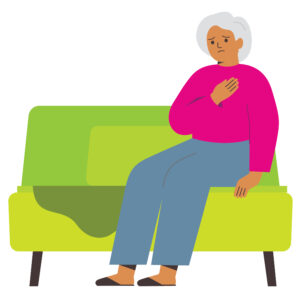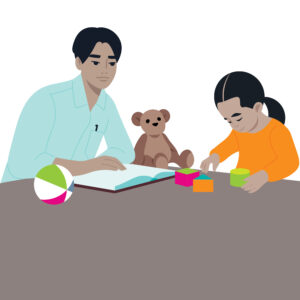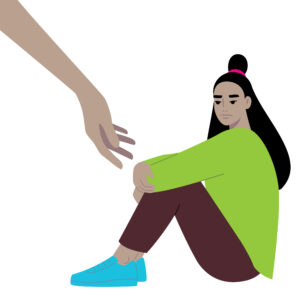What to expect in a time of emergency
 Stress is when you have more demands on you than you can cope with. Stress can affect your body, your mind and your daily life.
Stress is when you have more demands on you than you can cope with. Stress can affect your body, your mind and your daily life.
Stress is a normal reaction to a difficult situation or crisis. If you are feeling stressed, you are not alone. Almost everyone who has lived through a crisis experiences stress.
Reactions to stress can look different but common signs can be:
- Problems sleeping
- Eating more or less than usual
- Headaches or stomachaches
- Tense muscles
- Problems focusing, remembering or deciding
- Feeling anxious, worried or “on alert”
- Feeling sad, angry, confused, guilty or sad about surviving
- Feeling not much of anything
- Having a lot of memories about the event
- Spending a lot of time away from others
- Using more alcohol, medicine or other drugs
What can help
Recovering from an emergency can take a long time. There is no one right way to cope or to grieve, but there are some ways that can help you and members of your family or community:
- Notice changes in yourself, including your feelings. It’s OK to feel as you do
- Give yourself time to recover. It’s natural that you grieve
- Maintain regular daily routines
- Whenever you can, eat healthier foods, move your body and get adequate sleep
- When you can, take time to do something you enjoy
- Spend time with other people
- Do spiritual or cultural practices that are helpful to you
- Focus on the things you can control
- Ask for and accept help when you need it
- Talk about the event with people you trust
- Remember that giving yourself time and trying to stay hopeful about the future is important
Helping children
 Children’s reactions may look different. Children who have gone through stress or loss may switch quickly from grief to play. Almost all children play, even if they have gone through a crisis event.
Children’s reactions may look different. Children who have gone through stress or loss may switch quickly from grief to play. Almost all children play, even if they have gone through a crisis event.
Younger children who are stressed may also:
- Show strong feelings and may fight, cry or scream more
- Not want to be separated from their caregiver
- Act younger than their age (wetting the bed or sucking their thumb or fingers)
- May not adjust to new changes easily
What you can do as a parent/guardian:
- Explain to children what is happening and what to expect as best you can
- Give facts using words they can understand
- Reassure them that they are safe
- Keep up with daily routines
- Talk with your children about their feelings.
- Have them draw pictures about what they’re experiencing
- Offer hugs or high-fives to your children
- Make time for them to connect with other children and have fun
Where to get more help to cope with stress

Sometimes we all need extra support. Think about asking for more help if you are finding daily life difficult and it has already been a few weeks since the crisis. You might also find you are better able to help others when you are doing well yourself.
Help often comes from more than one place. Help may start with a friend, Elder or a faith leader. Help can be a support group, a helpline, a doctor or a counsellor. These are a few phone numbers that may help any time of day or night:
- BC Mental Health Support Line:* 310-6789
- Suicide Helplines:* 1-800-784-2433 (1-800-SUICIDE) or text/call 9-8-8
- KUU-US Indigenous Crisis and Support Line: 1-800-588-8717
- Text or call 2-1-1* for community social services
* These services are available in more than 100 languages. To speak to an interpreter, say the English name of the language you want to speak (e.g., “Mandarin” or “Punjabi”).
This resource was developed in partnership with the Canadian Red Cross, First Nations Health Authority, Health Emergency Management BC, the Salvation Army, and United Way BC in 2024.

